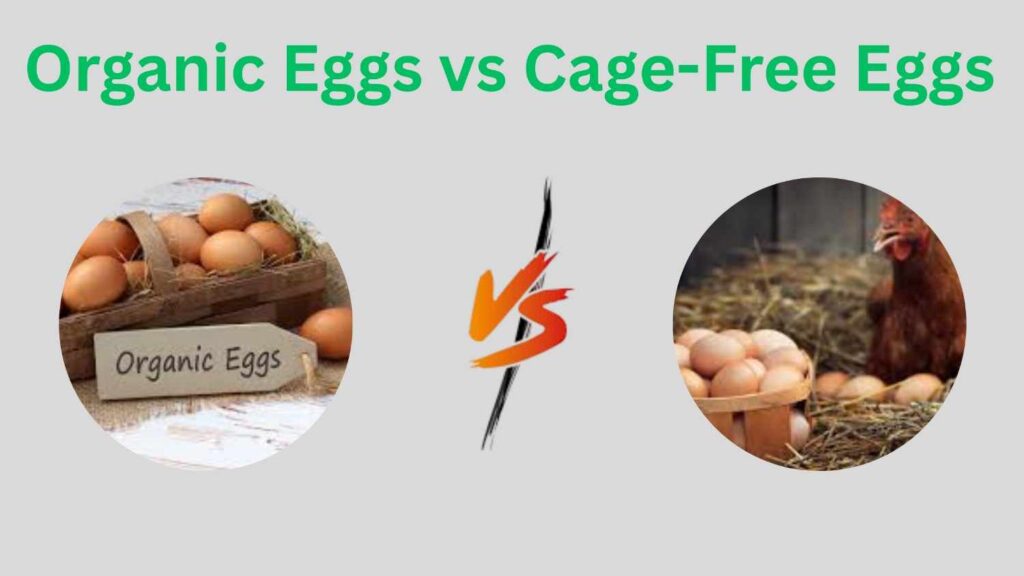If you’ve ever stood in the egg aisle wondering what’s up with all the labels—like “organic” and “cage-free”—you’re not alone! These words promise better eggs and happier hens, but what do they really mean? Let’s have a friendly chat and clear things up so you can choose eggs with confidence.
What Does “Cage-Free” Mean?
When you see “cage-free” on a carton, it means the hens aren’t kept in tiny cages. That’s good, right? But here’s the catch—they usually live inside big barns or sheds. They can walk around and flap their wings, but they often have no outdoor access. Imagine a super crowded barn where thousands of hens live together. Sometimes it’s better than a cage, but still not a big playground for the birds.
Cage-free hens don’t have to eat organic feed, and antibiotics might still be used to keep them healthy. The rules for “cage-free” aren’t very strict by the government, so conditions can vary a lot.
What About “Organic” Eggs?
Organic eggs come from hens that also live cage-free but with more rules to follow. Organic hens must have access to the outdoors—though sometimes it’s just a small space or patio rather than a big grassy field. They get 100% organic feed, which means no GMOs, no synthetic chemicals, and no harmful pesticides.
Antibiotics and hormones are mostly banned for organic hens, making organic eggs a cleaner, healthier option. The government checks organic farms closely to make sure they follow these standards

Quick Comparison: Organic Eggs vs Cage-Free Eggs
| Feature | Cage-Free Eggs | Organic Eggs |
|---|---|---|
| Hen Housing | Indoors, no cages but crowded | Indoors, cages banned, outdoor access required (sometimes limited) |
| Outdoor Access | No | Yes, but often small outdoor space |
| Feed | Regular feed (may contain GMOs) | 100% organic feed, no pesticides or GMOs |
| Antibiotics Use | Routine use allowed | Only in emergencies |
| Price | Moderate | Higher |
| Animal Welfare | Better than caged | Higher standards, regulated |
How Do Living Conditions Affect Hens and Eggs?
Outdoor access matters a lot for hens. When hens can go outside, they scratch in the dirt, peck for bugs, and enjoy fresh air and sunshine. This helps them stay healthy and happy. Organic eggs come from hens with some outdoor access, but it might be tiny. Meanwhile, cage-free hens often don’t get outdoors at all.
Hens that roam outdoors, like “pasture-raised” hens, usually produce eggs richer in nutrients like omega-3 fatty acids and vitamins. This happens because they get a more natural diet—including insects and greens—compared to hens stuck indoors eating grain feed.
What’s the Difference in Price of Organic Eggs and Cage-Free Eggs?
Organic eggs usually cost more. That’s because organic farmers have to buy organic feed, which is more expensive, and meet strict animal welfare and environmental standards. Cage-free eggs cost less but still more than regular eggs because the hens get slightly better living conditions.
Keep in mind, a big chunk of the price difference at the store comes from retailer markups, not just farming costs.
Which Should You Choose?
- If you care most about healthy, chemical-free eggs: choose organic eggs. They come from hens that eat organic feed and have better care rules.
- If you want to support better hen living conditions but stick to a budget: cage-free eggs are better than conventionally caged eggs.
- If animal welfare and outdoor time are your top concern: look for pasture-raised eggs with third-party certifications like Certified Humane—they mean hens get plenty of outdoor space to roam.
FAQs:Organic Eggs vs Cage-Free Eggs
Also Read
